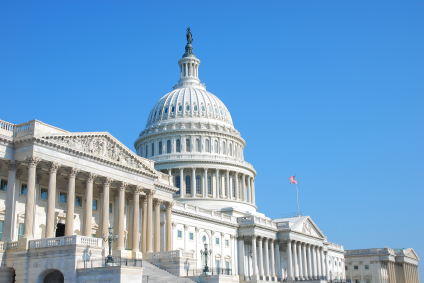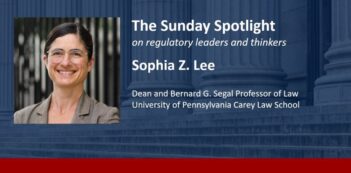
Regulatory preemption of state law should be tied to the presence of a preemption clause.
Nearly three decades since its seminal Chevron decision, the Supreme Court has yet to articulate clearly how that case’s doctrine of deference to agency statutory interpretations applies to one of the most important federalism issues of our time: regulatory preemption of state law.
When statutory language is ambiguous – a signal under Chevron of congressional intent to delegate interpretive authority – should courts also defer to agency interpretations finding preemption? Or does preemption require a specialized approach?
The Court has approached its preemption decisions cautiously, wishing to avoid altering the federal-state balance of power without express congressional authorization. Accordingly, it has deferred to agency interpretations haphazardly, sometimes applying a strong form of Skidmore deference and sometimes almost no deference at all, depending on its case-by-case assessment of Congress’s intent.
This haphazard approach is entirely unsatisfactory, but so too would be a rigid rule of universal deference or non-deference. Preemption is an unusual administrative power that Congress does not delegate lightly, but it is not so unusual that statutory ambiguity should never be read as delegation.
As an alternative to either an across-the-board rule or the Court’s current haphazard, case-by-case approach, I suggest a rule of variable deference that conditions deference on the presence or absence of an express preemption clause.
Where Congress clearly intends a statute to preempt some state law but is ambiguous as to preemptive scope, Chevron’s doctrine of delegation and consequent deference to an agency’s interpretation seems quite sensible. Courts should grant full Chevron-style deference in such cases.
But where Congress is entirely silent on preemption, the inference of delegation is far less reasonable. Congress’s silence speaks quite clearly against preemption and should not be read as a delegation of preemptive interpretive authority. Courts should grant agency views no deference in such cases.
A rule of variable deference packages the Court’s core concerns into a bright-line rule that is easy to apply and tracks congressional intent more closely than do any competing proposals.
This essay draws on a forthcoming article in Volume 63 of the Administrative Law Review.




